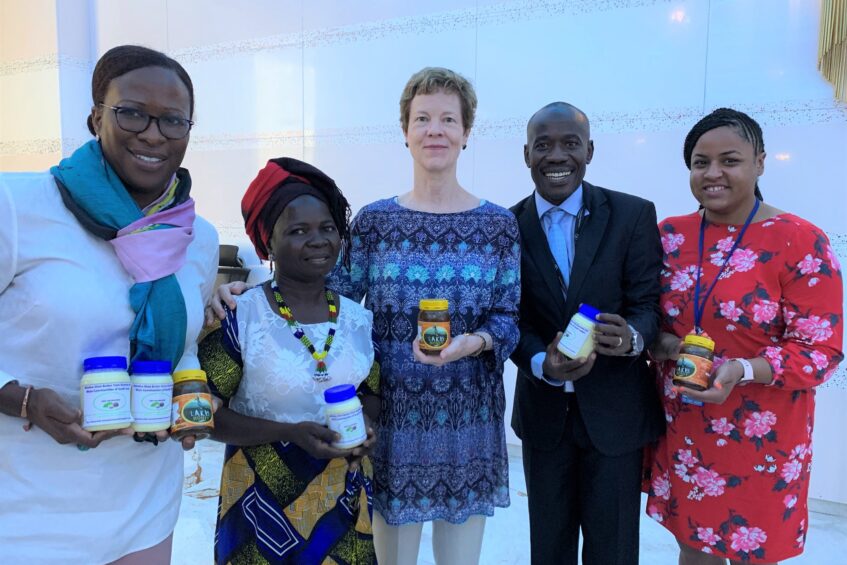You are here: Home | Humanitarian | News | 65,000 people benefit from USAID, FAO economic resilience project

USAID Mission Director Kate Crawford and FAO officials celebrate the results of a five-and-a-half-year joint activity that improved nutrition and dietary diversity of 65,000 households. Juba, April 3, 2023. | Photo: USAID.
At least 65,000 South Sudanese have benefited from a five-and-a-half-year USAID and FOA initiative on economic resilience.
The program, which began in 2017 and ended in March 2023, was initiated by the US Agency for International Development alongside the UN Food and Agriculture Organization.
The initiative has helped in improving the livelihoods, food security, and nutrition levels of individuals from the targeted communities in five states.
These include; Jonglei, Easter Equatoria, Lakes, Northern Bar El Ghazal, and Western Equatoria States.
The activity worked with farming groups and other grassroots cooperatives to improve nutrition and dietary diversity.
It has seen an increase from 15 percent to 65 percent of households that consumed more than six different food groups in a day.
About 20 beekeeping and 13 shea-nut cooperatives groups with 600 and 400 members respectively were established.
It also established several milk bar centers in Jonglei and Northern Bahr el Ghazal States that sold processed milk for cheese, yogurt, and other products.
“This activity provided essential support to help communities regain their livelihoods and improve their food security,” said USAID Mission Director Kate Crawford.
“USAID continues to focus on supporting South Sudanese communities to build their resilience. SAFER is a good example of how strategic investments can help communities shift from humanitarian assistance to self-sustainable development.”
On her part, the representative of the women beneficiaries expressed her gratitude for the US support.
“Am very happy and I thank FAO for supporting us and bringing us to Juba. I want to talk briefly about how honey is processed traditionally previously those days it was very hard to collect and process honey.”
“But now it has become easy with this training we have acquired previously we only used to harvest honey at night and you know bees if you are aggressive and you will not manage that’s why we used to do it only at night but with the help of this training we managed to achieve a lot.”
The program also provided information on literacy, hygiene practices, record keeping, business management, and preventing gender-based violence.
Support Eye Radio, the first independent radio broadcaster of news, information & entertainment in South Sudan.
Make a monthly or a one off contribution.
Copyright 2024. All rights reserved. Eye Radio is a product of Eye Media Limited.